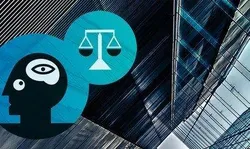
Ethical Dilemmas in Professional Engineering 
Engineers must be prepared to face ethical dilemmas in their professional practice. If not handled properly, these can have serious consequences, such as jeopardizing the safety of people and the environment, as well as damaging the reputation of the engineer and their organization. ▼
ADVERTISEMENT
Course Feature
![]() Cost:
Cost:
Free
![]() Provider:
Provider:
Edx
![]() Certificate:
Certificate:
Paid Certification
![]() Language:
Language:
English
![]() Start Date:
Start Date:
Self paced
Course Overview
❗The content presented here is sourced directly from Edx platform. For comprehensive course details, including enrollment information, simply click on the 'Go to class' link on our website.
Updated in [March 06th, 2023]
Learners can learn from this course about ethical dilemmas in professional engineering. They will gain an understanding of the professional rules of ethics for engineers and how to apply them. They will learn about codes of ethics as an expression of professional rules of conduct, different types of codes of conduct, challenges and limitations in codes of ethics, whistleblowing and the circumstances in which it is morally warranted, conflicts of interest and ways of handling them, and the importance of communication with societal stakeholders and best ways of achieving it. Through informative videos, readings, case studies, assignments and interviews with CEOs, learners will gain a comprehensive understanding of these topics. They will also have the opportunity to reflect on how these issues are dealt with within their own work practice and organization. Finally, if they upgrade to the verified track of the course, they will receive personalized feedback and formal grading of their assignments by the instructor.
[Applications]
Upon completion of this course, participants are encouraged to apply the knowledge and skills acquired to their professional practice. This includes reflecting on how ethical issues are dealt with within their own work practice and organization, and how to act in conflicting situations. Additionally, participants may use the course to help them become a Chartered Engineer or maintain this qualification as part of their continuing professional development.
[Career Paths]
1. Professional Engineer: Professional Engineers are responsible for designing, developing, and managing engineering projects. They must have a strong understanding of engineering principles and be able to apply them to solve complex problems. Professional Engineers must also be able to communicate effectively with other professionals and stakeholders. As technology advances, Professional Engineers must stay up to date with the latest developments in their field and be able to apply them to their projects.
2. Engineering Manager: Engineering Managers are responsible for overseeing the engineering team and ensuring that projects are completed on time and within budget. They must have a strong understanding of engineering principles and be able to manage a team of engineers. Engineering Managers must also be able to communicate effectively with other professionals and stakeholders. As technology advances, Engineering Managers must stay up to date with the latest developments in their field and be able to apply them to their projects.
3. Ethical Engineer: Ethical Engineers are responsible for ensuring that engineering projects are conducted in an ethical manner. They must have a strong understanding of engineering principles and be able to apply them to solve complex ethical problems. Ethical Engineers must also be able to communicate effectively with other professionals and stakeholders. As technology advances, Ethical Engineers must stay up to date with the latest developments in their field and be able to apply them to their projects.
4. Quality Assurance Engineer: Quality Assurance Engineers are responsible for ensuring that engineering projects meet the highest standards of quality. They must have a strong understanding of engineering principles and be able to apply them to ensure that projects are completed to the highest standards. Quality Assurance Engineers must also be able to communicate effectively with other professionals and stakeholders. As technology advances, Quality Assurance Engineers must stay up to date with the latest developments in their field and be able to apply them to their projects.
[Education Paths]
Three degree paths that are recommended for learners of this course are:
1. Bachelor of Science in Engineering: This degree provides a comprehensive overview of the engineering field, covering topics such as mathematics, physics, chemistry, and engineering principles. It also provides students with the opportunity to specialize in a particular engineering discipline, such as mechanical, electrical, or civil engineering. As technology continues to evolve, the demand for engineers with a Bachelor of Science in Engineering is expected to grow.
2. Master of Science in Engineering: This degree is designed for students who want to pursue a career in engineering research or management. It provides a deeper understanding of engineering principles and allows students to specialize in a particular engineering discipline. With the increasing complexity of engineering projects, the demand for engineers with a Master of Science in Engineering is expected to grow.
3. Doctor of Philosophy in Engineering: This degree is designed for students who want to pursue a career in engineering research or academia. It provides a comprehensive understanding of engineering principles and allows students to specialize in a particular engineering discipline. With the increasing complexity of engineering projects, the demand for engineers with a Doctor of Philosophy in Engineering is expected to grow.
Course Provider

Provider Edx's Stats at AZClass
Discussion and Reviews
0.0 (Based on 0 reviews)
Explore Similar Online Courses

Python for Data Science

Get up to speed with Majestic link building

Python for Informatics: Exploring Information

Social Network Analysis

Introduction to Systematic Review and Meta-Analysis

The Analytics Edge

DCO042 - Python For Informatics

Causal Diagrams: Draw Your Assumptions Before Your Conclusions

Whole genome sequencing of bacterial genomes - tools and applications

Data Journalism and Media Standards

Ethics Fundamentals

Leadership Ethics and Integrity: A Comprehensive Guide !
 Related Categories
Related Categories
 Popular Providers
Popular Providers
Quiz
 Submitted Sucessfully
Submitted Sucessfully
1. What is the main purpose of this course?
2. What topics are discussed in this course?
3. What type of feedback will you receive if you upgrade to the verified track of this course?
4. The course will benefit engineers who __________.
Correct Answer: want to learn professional rules of ethics and how to act in conflicting situations


Start your review of Ethical Dilemmas in Professional Engineering